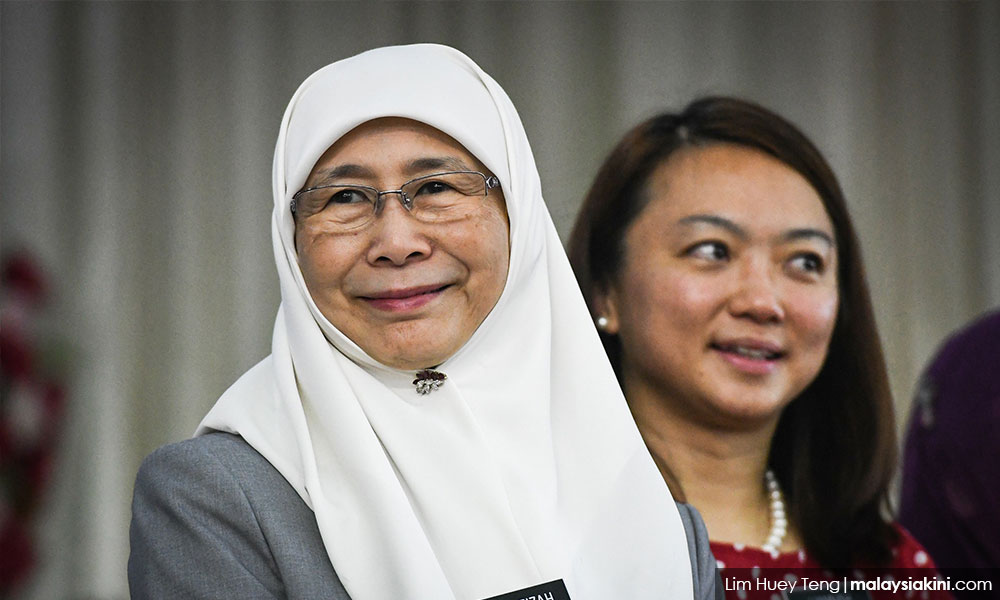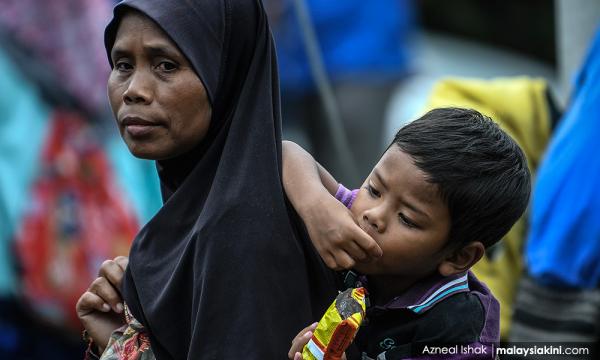COMMENT | Children are beaten, abused and killed on a daily basis in Malaysia. The headlines change so rapidly that the protection of children is often pushed back until the next tragedy impacting a child.
The situation of children in the country is in a state of emergency.
The Langkawi tragedy - the death of Nur Aisyah Aleya Abdullah - will not be captured like the legend of Mahsuri. Nur Aisyah Aleya joins Audrey Melissa, Nur Jazlin, Nurul Huda, and Nurul Hanis etc, the names in a list of cases that have rocked the nation over the years with violent sexual abuse leading to the death of these children.
Will Nur Ayesha remain a number in the list of abused children killed?
While it is true that Malaysia has made progress in child protection and welfare due to the efforts of the government, various institutions, and organisations including the NGO sector; these efforts have addressed issues like access to education, health, child labour etc.
Many of these efforts have made headway in addressing specific children’s rights as stated in the UN Convention on the Rights of the Child (UNCRC).
However, the problems associated with child abuse lack the political will for a much more integrated policy response.
“Children’s issues are development issues. Somehow, children seem to come last in the ministry, although we are very focused on children’s issues.”
- Dr Ng Yen Yen, former Minister of Women, Family and Community Development.
Policies are statements of intention. They are effective only if they are accompanied by laws that safeguard the rights of children, their development, and protection.
In this context, Malaysia has ratified the UNCRC in 1995 but with exceptions. The principal act governing the care, protection, and rehabilitation of children is the Child Act 2001.
The key institutions involved in child protection in the country include the Health, Women, Family, and Community Development (under which the Social Welfare Department is placed), Home Affairs (which includes the police), the Education, and the Youth and Sports ministries.
Responses to child maltreatment have tended to be crisis-driven, resulting in only those cases that pose serious risks being followed up on.
While most government programmes have the necessary physical facilities, shelter homes are overcrowded. In contrast to government-run activities, which are well funded, the NGO programmes are dependent on philanthropy or charity.
I have often raised the question if Malaysia is a country at war as children’s homes are overcrowded. Where are the parents?
The lack of professional staff and volunteers - such as psychologists, trained social workers, and childminders - is a serious concern.
In the final analysis, child abuse is a societal problem but is often treated at the individual or family level.
As pointed out by the author L Armstrong, when we reformulate the issue of child abuse in terms of mental health problems, the language “tends to paralyse our critical skills and deflect attention from compelling social problems”.
The preamble to Malaysia’s Child Act 2001, which defines a child as one below the age of 18, states that Malaysia recognises a child not only as a crucial component of society but also the key to its survival, development, and prosperity.
Every child has the right to survival, protection, development and participation’.
Deputy Prime Minister Dr Wan Azizah Wan Ismail felt sad on hearing of the death of Nur Aisyah Aleya. That’s not good enough.

Establish a ministry for children. The Women, Family, and Community Development Ministry’s annual budget in 2017 was RM1.977 billion. It should be turned into a department.
Combating child abuse requires attention to the root causes, as was eloquently described by psychologist LA Fontes:
“When we find out a child has been hurt, we open a case file and seek an individual or family solution: foster care, parenting classes, psychotherapy, or simply continued monitoring by state agencies.
“The link between inadequate resources for families and child maltreatment seem clear and paramount to me, and yet it is easier to seek and implement an individual solution, hoping to save a tree, as we watch the forest burn.”
JOSIE FERNANDEZ is a researcher and has worked on child labour and child protection issues.
The views expressed here are those of the author/contributor and do not necessarily represent the views of Malaysiakini.

